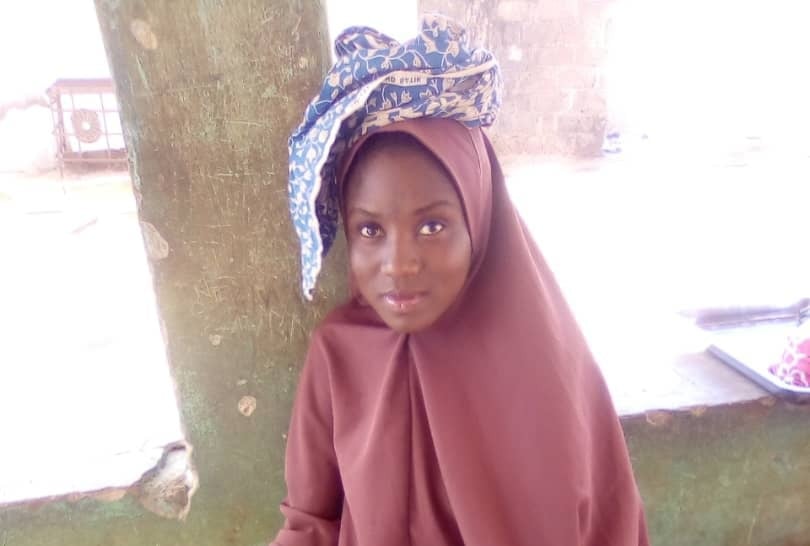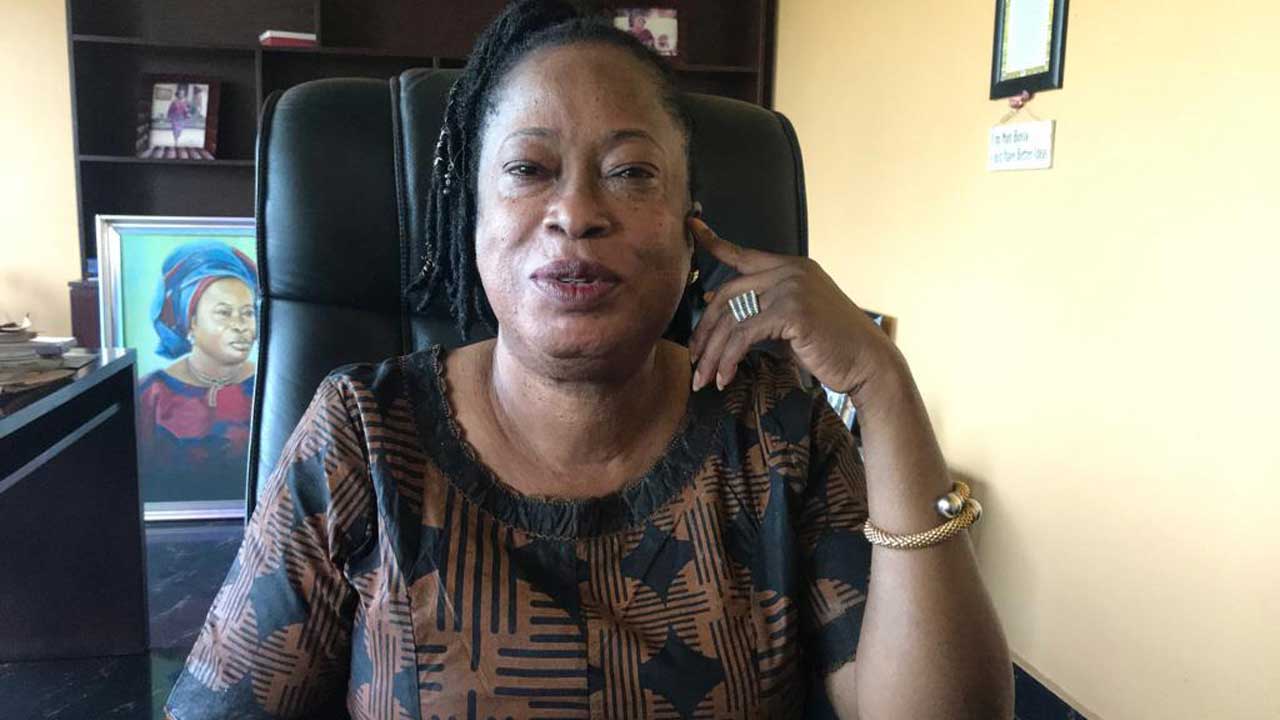Ever since she was little, Fatima Badamasi, 12, had always hoped to become a nurse, but at the moment, her dreams are on hold; sitting in the rearview of life, as she hawks spices in Erena town, a community in Niger state.
The young girl had fled from Farin Kasa in Shiroro LGA to Erena after gunmen invaded and wreaked havoc on her village. She dropped out of school when she completed Primary Four and had since then lived with her sister who is currently her only family.
Grappling with daily hardship and an inability to afford an education, Fatima no longer has her sight set on going back to school — rather, she hopes to get married.
Substituting the dream of ‘studying to be a nurse’ for ‘being a wife’ seems to be the only practical course of action for Fatima, given the financial constraints and security situation in the zone.
Advertisement
“The hardship is too much to think about school. That is why I am thinking about getting married, perhaps it will ease the severity of the hardship we are experiencing,” she said.
“I had always wanted to become a nurse until they attacked our village and that dream died.”
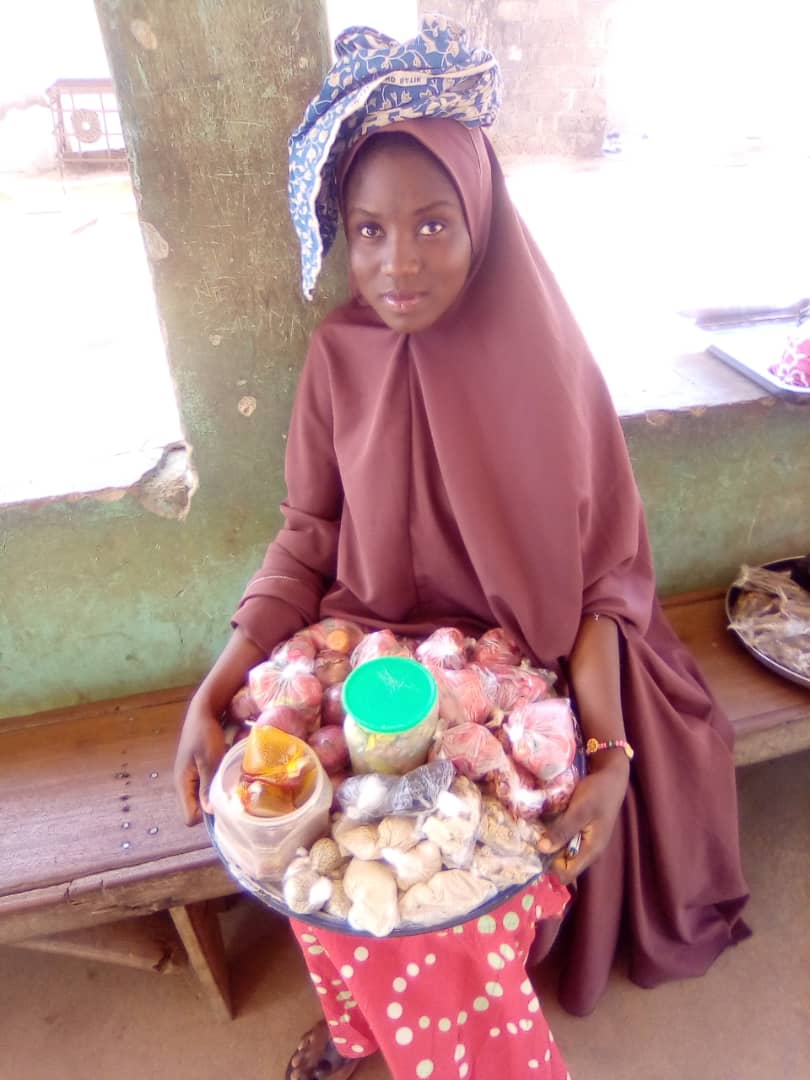
The travails of Kamilat
In 2020, when gunmen attacked Chukuba, a village near Erena, Kamilat Aliyu was among the few residents who managed to get away unhurt.
Advertisement
She was only nine years old at the time but survival was chief on her mind as she frantically ran for her life amidst an onslaught of gunshots. When she made it out of the forest where she had fled for safety, Kamilat stumbled on fellow absconders packed in a truck heading to Erena – a relatively peaceful community.
They were taken to an internally displaced persons (IDP) camp in Erena. While there, she hoped to be reunited with her family but she could not find any of them in the camp.
Kamilat, now 12, hid in a corner of a room where she wept non-stop for several days, only taking breaks to eat and sleep.
“We were just sitting in our house in Chukuba when they (gunmen) stormed our village. I ran out of the house together with my parents and siblings but I don’t know how we suddenly got separated,” she said.
Advertisement
Kamilat subsequently made many futile attempts to search for her family members in the camp. Whether they survived the attack or were killed was a mystery to the pre-teen — until the day she stumbled on her brother during her daily crisscrossing of the town in search of her loved ones.
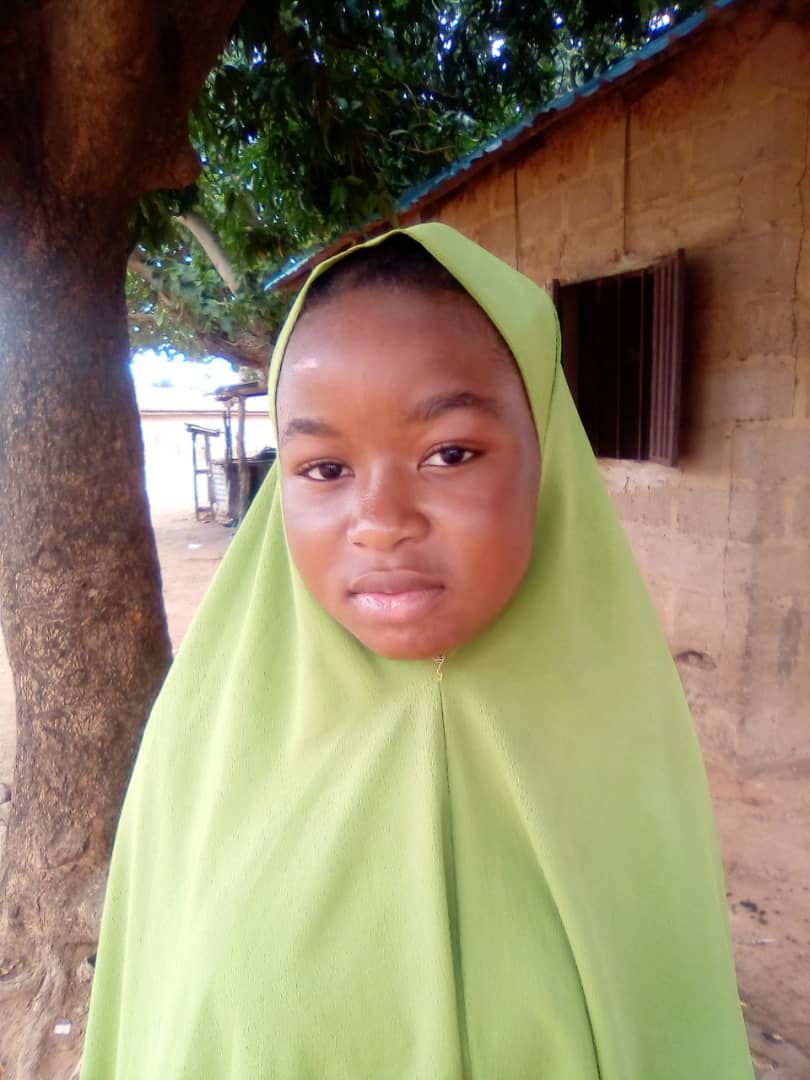
“When I arrived at the IDP camp, I realised I was the only one from my family. I watched other residents as they reunited with their families,” she recounted.
“My eyes were constantly drenched with tears until I met my elder brother one day in town. He told me he had not seen our father and mother but had my two younger siblings with him.”
The children would eventually find their father two months later, but to date, their mother remains missing.
Advertisement
“We have been searching for her but no one who knew her had seen her for over two years now,” she said.
With bandit attacks increasing in villages across Niger state, many displaced persons have been trooping to the Erena IDP camp, resulting in congestion and discomfort for the Aliyu siblings.
Advertisement
Kamilat said her much older teenage brother had to rent a one-room apartment for N10,000 monthly after undertaking numerous jobs to raise the funds.
“We are currently living in the house my brother rented. He usually follows a truck driver who works for a cement company to earn the money he uses to feed us,” she said.
Advertisement
Survival over school
Before Kamilat was forced to desert her village, she was enrolled in a public primary school and had already completed Primary Six. But given their current circumstances, Kamilat and her siblings have had to forfeit schooling — and focus on surviving.
To alleviate the load on her brother, she currently fetches water for a neighbour who pays for her services.
Advertisement
“My neighbour usually pays me from N50 to N150 but it depends on the bucket of water I carry. I have been using the money to support my brother,” she said.
“I would love to continue schooling but there is no money. The public primary school here is no longer functional. People no longer go to school there as it has been turned into an IDP camp.”
Teachers flee for safety, schools shut down
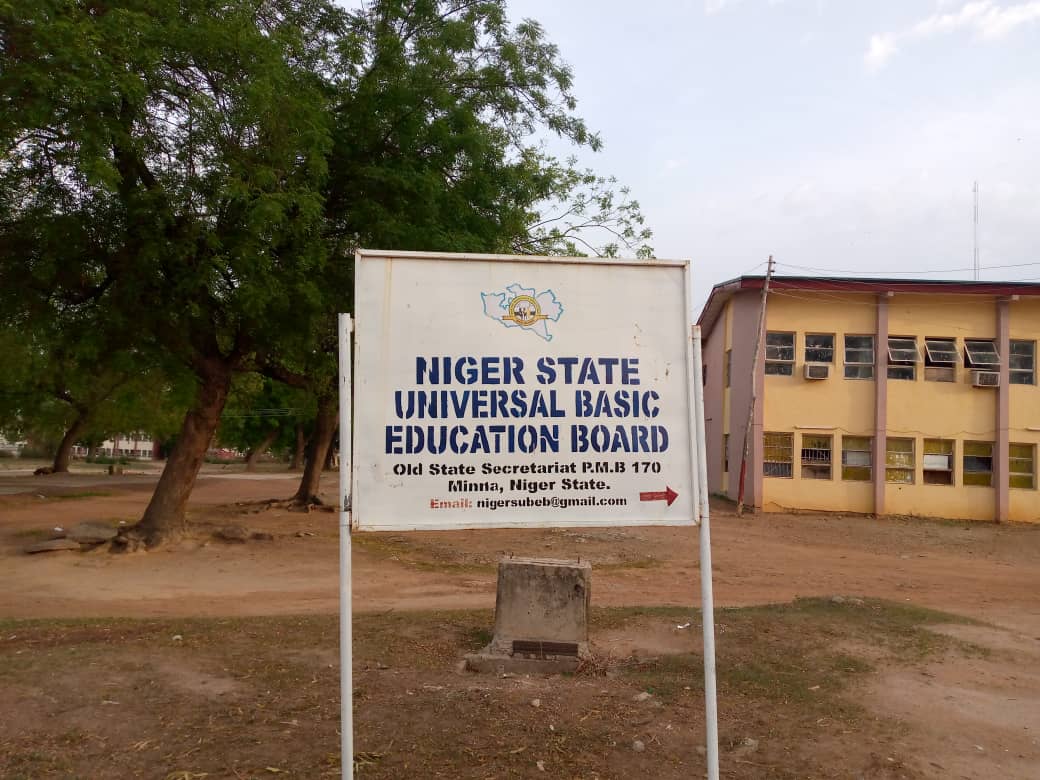
Given the spate of attacks, many schools in Niger had been forced to close down as residents and teachers have either been killed or fled for safety.
The effect of insecurity on the education system is profoundly evident in the increasing rate of out-of-school children in Nigeria.
Since 2014 when the Chibok secondary school in Borno was attacked and students abducted, a significant number of schools have come under attack and more students taken hostage. Some return after a ransom must have been paid, while many others are never seen again. This has deterred many students, particularly females, from returning to school, even after being assured of safety.
Most of these girls either succumb to the option of marriage or are compelled to hawk on the streets.
According to the United Nations Children’s Fund (UNICEF), 1.3 million children have been affected by the shutdown of 11,536 schools due to insecurity since December 2020.
TheCable reported in September 2021, that, at least, one million children in Nigeria are afraid to return to school due to security problems.
Many children who have experienced attacks are either uninterested in learning or not receiving the quality education required.
Recently, UNICEF estimated that about 70 percent of schoolchildren in Nigeria are not benefitting from quality education.
Why 60% of out-of-school children are girls
As insecurity persists in many parts of the northern region, available data have shown that more girls than boys are not going to school.
Based on UNICEF’s data, Nigeria has over 10 million out-of-school children, a figure which is the highest in the world. Out of the over 10 million, girls are said to make up 60 percent.
During attacks on schools, girls are often targeted for abduction by gunmen who subject them to various forms of sexual violence and they are often forced into marrying their captors.
In 2018, UNICEF reported that Nigeria had the highest number of child brides in West and Central Africa. An estimated 22 million child brides were said to live in the country.
Confronted with the double trouble of insecurity and poverty, many girls are pressured into choosing between surviving in marriage or suffering in poverty.
How insurgency frustrates girl-child education
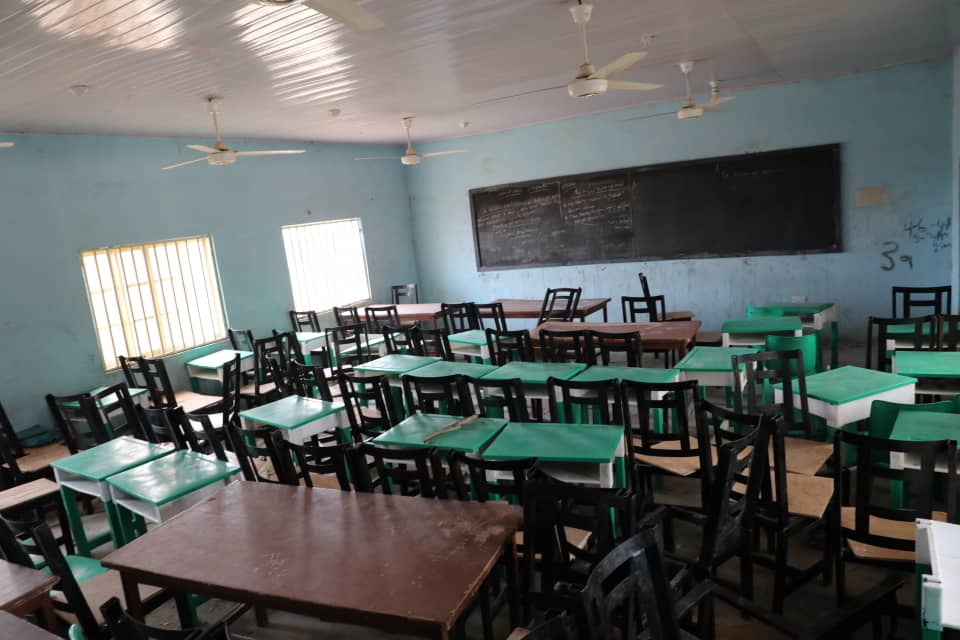
Ummi Bukar, founder of Paged Initiative, a gender development organisation, said the efforts and advocacy invested in encouraging female child education, especially in the northern part of Nigeria, were thwarted by the activities of terrorists.
“Insecurity has already made the situation very worse, especially in northern Nigeria where girl child education is already extremely low,” she said.
“With insurgents and bandits targeting girls’ schools, the Chibok girls being the first major abduction, there are a lot of other abductions that have happened in Borno state since that time, and now the north-west and north-central have had incidences of children being abducted from school.
“These are places where acceptance of child education was already low. So many schools have been shut down since children started getting abducted and a lot of boarding schools have closed down.”
Bukar said although most of the girls yearn to return to school, they are not afforded such an opportunity because of their locations.
“Based on my interaction with the children in the IDP camps, these children are ready for the school but the problem is that less than 30 percent of IDPs are in registered IDP camps,” she said.
“A large number of IDPs are in unregistered IDP camps where organisations that render humanitarian aid don’t reach because they only cover government registered camps.
“Many IDPs have to fend for themselves, they don’t have any assistance. In these instances, education is not top on their priority as they have healthcare, food, and shelter to worry about, so even If a child wants to get an education, the parents might not be able to enrol them in schools.
Isah Adamu, chairman of Niger State Universal Basic Education Board (NSUBEB), recently put the number of out-of-school children at over 700,000.
According to Adamu, the number had increased to 743,056 as of January 2022.
What is the way out?
To achieve gender equality and improved girl-child education in Nigeria, Bukar said there is a need to seek alternative means to keep children safe while learning.
She said community tutoring and a distance learning system will enhance learning, tackle insecurity in schools and also encourage more girls’ education in the country.
“I think we need to start thinking outside the box because the school system has been compromised. It is more dangerous to put children in schools than keep them out of schools,” she said.
“We can have informal schooling within their communities, community effort needs to come in because we can’t have the ideal standard, we need to start looking at options.
“Community tutoring where older members of a community come in to tutor the younger ones should be considered, we can have volunteer teachers and conduct classes on radios as it’s very accessible in many rural communities. Children should not be kept at home without education.”
Add a comment
